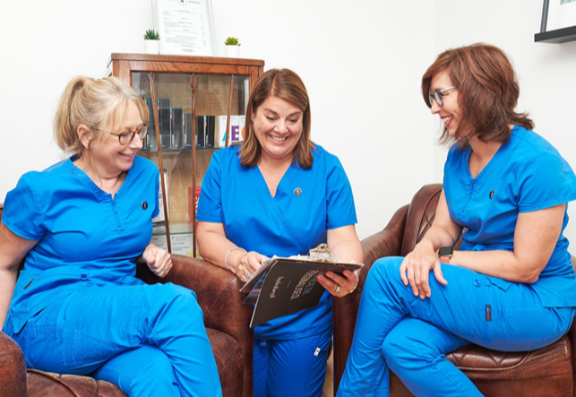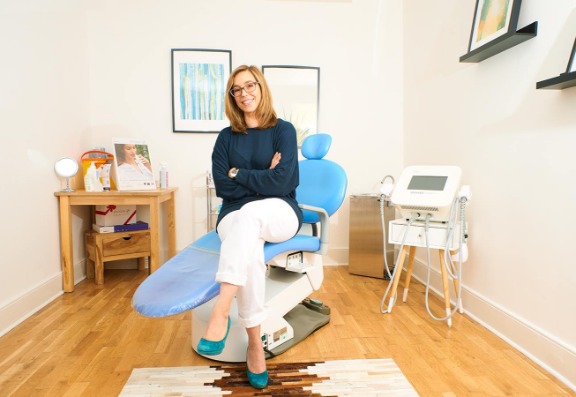Microbiome: The trendiest word you'll hear about skin in 2022.
It is defined as a community of microorganisms (bacteria, fungi, viruses) that work together in and on the human body. The human skin is literally crawling with creatures!
There are over 1000 bacterial species that live on our skin and 80 different fungi types.
That’s a lot of crawlies!
We know how important gut bacteria are to our digestion and overall well-being. Likewise, these crawlies on your skin plays a huge role in skin health. So what can we do to look after our skin’s microbiome?
The crux is that there is a holistic association between the skin and the bugs on your skin. In other words, healthy skin means a healthy microbiome and a balanced microbiome means healthy skin. These micro-organisms derive their nutrients from our skin, and their survival depends on how hospitable our skin is to them.
For you, it means that your skin needs to be functioning well to provide a good environment for balance. Skin function is dependent on many things, some of which are out of our control like genetics.
Other factors like diet and hydration are solely down to us.
What’s interesting is that it’s only recently that we’ve come to know more about these passengers on our skin.
Rapid advances in gene sequencing have made projects like the Human Microbiome Project, which collected keystone information on these bugs, possible.
Information from these projects has made us aware of how much remains unknown about the bugs that live on us, especially when it comes to conditions like inflammatory bowel disease, type 2 diabetes, and preterm birth, and the role these critters play in the development of conditions like these.

It’s important to note that the microbiome is widely variable depending on the area of the body we look at and is widely adaptable.
Looking at skin we can safely say that we have the “BIG THREE” that form the core of the species that live there.
They are Cutibacterium, Staphylococcus, and Corynebacterium, and they make up 40-80% of the overall bugs that live on our skin. On the face, the predominant of these BIG THREE thrives in an **oily** environment, Cutibacterium.
Strip these oils away, change the Ph or hydration, and you will kill some of them off, creating an imbalance where bad bugs can breed.
Diversity in the subspecies of the BIG THREE (Beta diversity) is important. However, recent research indicates that the diversity of the other bugs (Alpha diversity) is important too.
That means that fungi like Malassezia, higher organisms like Demodex folliculorum, and possibly viruses that live on our skin, play a part in maintaining healthy skin and cannot be dismissed.
The diversity of the crawlies on our skin can be compared to a fingerprint, unique in its own way but not so unique, thankfully, to make clinical or epidemiological analysis impossible, and we are learning more and more about the bugs that keep our skin healthy.
Maybe someday we’ll know enough to restore microbiome health; perhaps a vaccine might be the answer to treat certain skin conditions but until then…

A healthy diet, balanced hormones, good genes and most importantly maintaining skin function by preserving the acidity, hydration, and natural oils of the skin remains our best defence against skin problems.
In other words, create the right environment for a diverse and balanced microbiome and you are more likely to keep your skin healthy and free of inflammation- inflammation being one of the main contributors to ageing skin and skin conditions.
In my practice, one of the main problems I face when treating skin ageing and skin problems is my patients using the wrong products for their skin.
Take for example moisturisers containing essential oils.
Not many of you may be aware but these essential oils are known allergens that can cause inflammation, dehydration, and disruption to our delicate microbiome.
Another product that I see my patients using in mass are face cleansers bought in high street chemists and stores, containing strong detergents and acids that strip the skin of sebum, essential to Cutibacterium’s (one of the BIG THREE’s) diet.
What I would like to see is more of my patients using fewer products, but the ones that they use are right for them. Mindfulness when investing in skincare will make a huge difference to your skin, and investing in your future skin is kind to the creatures that live there!
I often ask my patients to bring their products along to their appointments and am usually shocked at how many products most people use.
What’s even weirder is that most are hoping I might be able to advise them on what else they need to buy to improve their skincare regime! Anyone that knows me or has come to see me knows that I won’t always tell you what you want to hear.
The reality is that there is no magic cream, lotion, or potion that’s going to work miracles. Nowadays, there are a plethora of aesthetic doctors, nurses, and skin therapists who really know their stuff and can prescribe you a better skincare regime than you can find on the high street.
Look for someone who will give you generic advice and isn’t pushing a specific brand.
By generic, I mean that they should tell you the ingredients to look for in skincare and recommend a few basic activities to start you on your skin journey.
Every doctor will be different but in our practice, Sue is the dedicated skin expert trained to the highest standards to give you good honest advice on what to use on your skin.
Her skin consultations are made up of an in-depth skin scan and analysis of your skin, products you are using, lifestyle, and diet.

All this is then put together to give you a tailored skin improvement plan, along with a taster of one of our treatments, depending on what she thinks is best suited for your needs. What follows will be a plan for your skin that will keep it healthy, youthful, and glowing.
No short-term goals here; the focus is on long-term prevention and management. Needless to say, she won’t be recommending double cleansing!
If you want to read more, the experts at Consulting Room really know what they're talking about and have put together some Specialist Skin Creams FAQs just for you.
If you have more questions, you can use the Specialist Skin Creams questions feature to talk to our panel of trained medical experts.
If you're keen to get started with any of these treatments right away then you're in luck - those clever folks also have a list of trusted, accredited Specialist Skin Creams clinics in your area.
Many thanks to the author of this blog Nichola Maasdorp who is the owner of Nichola Maasdorp at Number 4.
Nichola has made it her mission to really understand how to manage the ageing process for you so that you have a goal and long term plan to keep you looking and feeling amazing.
She has over 26 years of clinical experience and has accessed training from world leaders to ensure she can offer the best advice and deliver her treatments in keeping with her high standards.
She holds a Level 7 Injectables Qualification for Aesthetic Medicine from the prestigious Harley Academy, which means she has been comprehensively trained and assessed by a panel of experts in her field.
Call Nichola Maasdorp on 07595 221 484 or visit https://nichola-maasdorp-no4.co.uk.

Loved by Victoria Beckham and Kim Kardashian, BBL HEROic™ is now available at Dr Nina Bal’s clinic for anyone ready to upgrade their skin.
Croma’s latest range brings professional in-clinic results into your everyday routine. Clean, vegan, and packed with powerhouse ingredients, these products are designed to hydrate, brighten, protect, and fight early signs of ageing.
We ask an expert skin doctor: ‘What are the benefits of LED therapy, and is it worth the investment?’
Hey, wait!
Before you go.....
Let's stay in touch, pop your details here and we'll send our editor's hand-picked updates on your fave subjects.